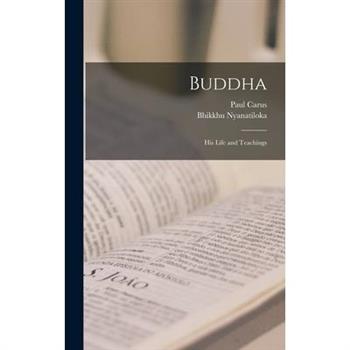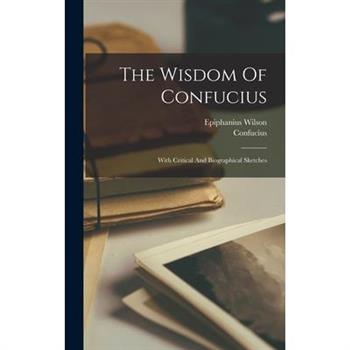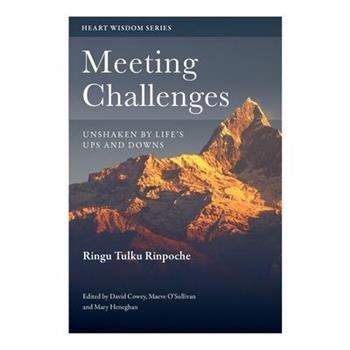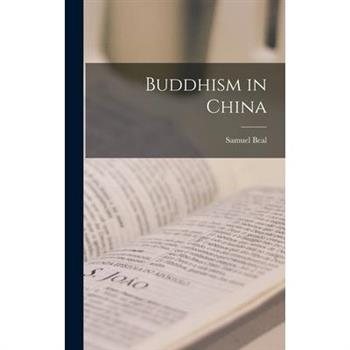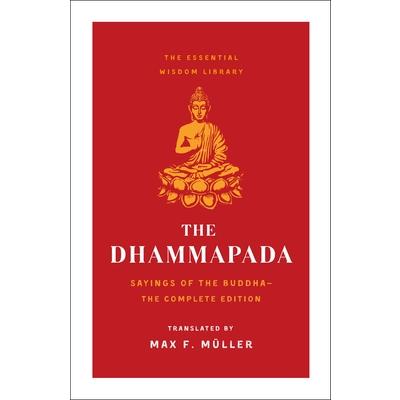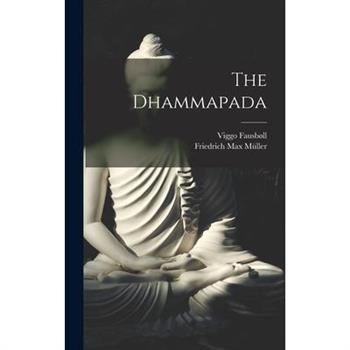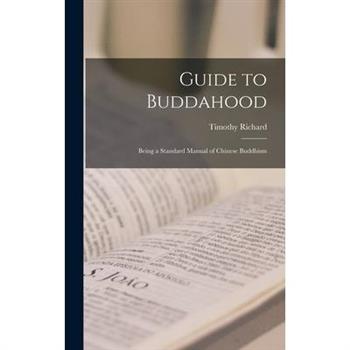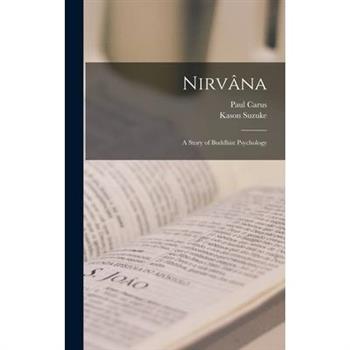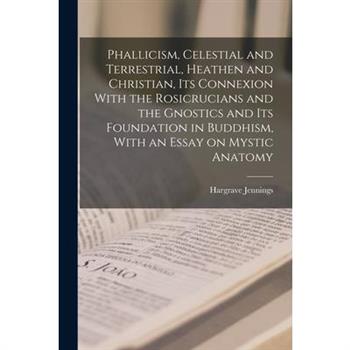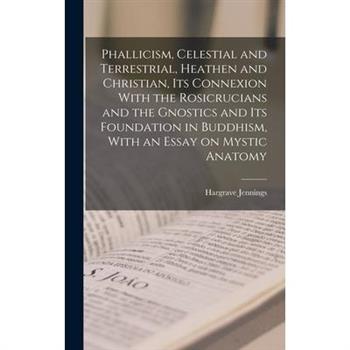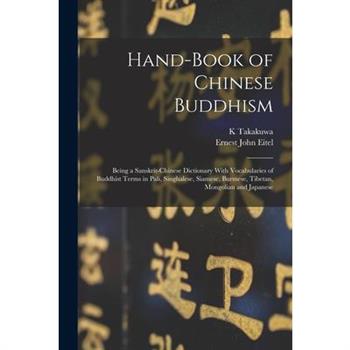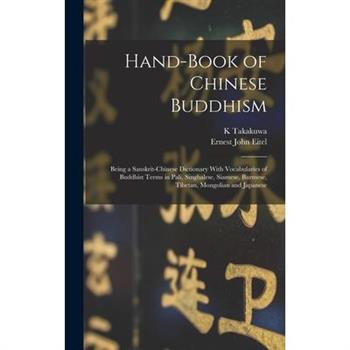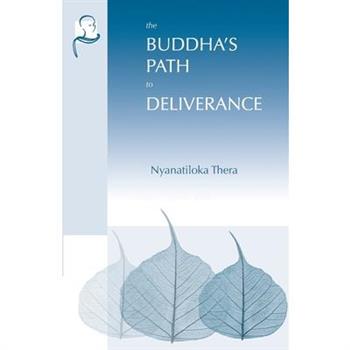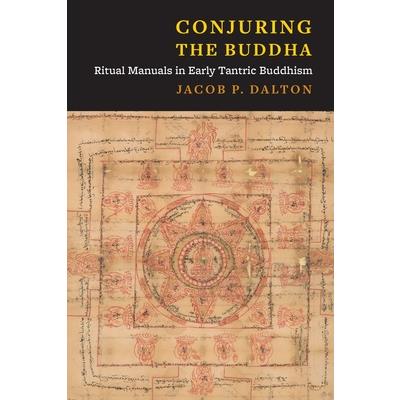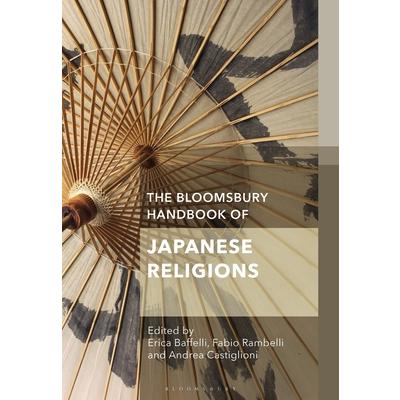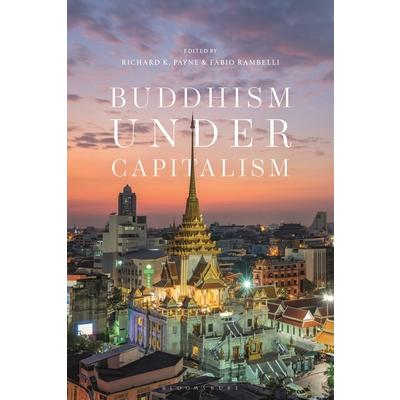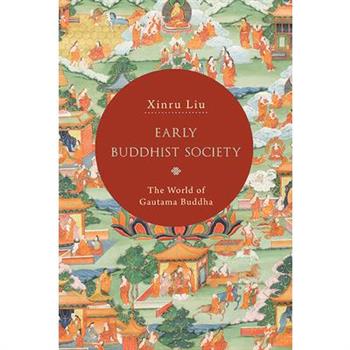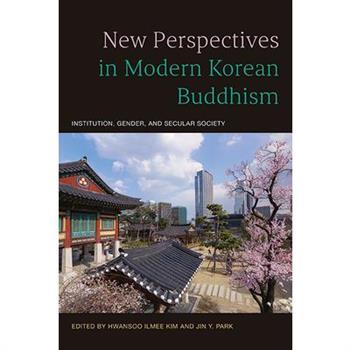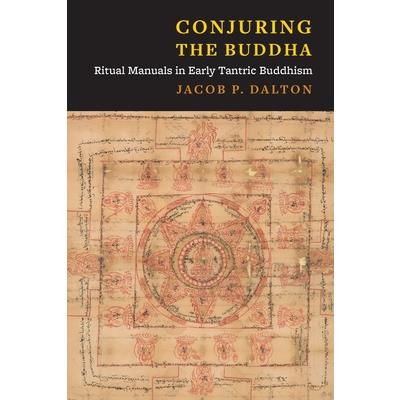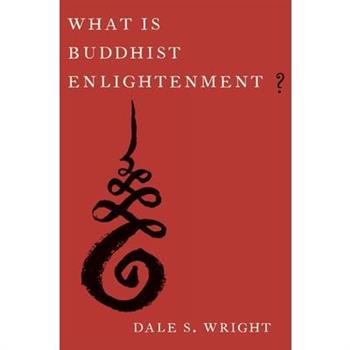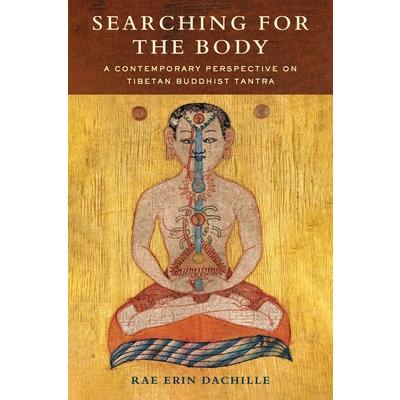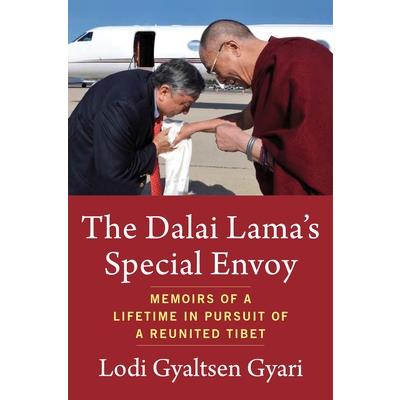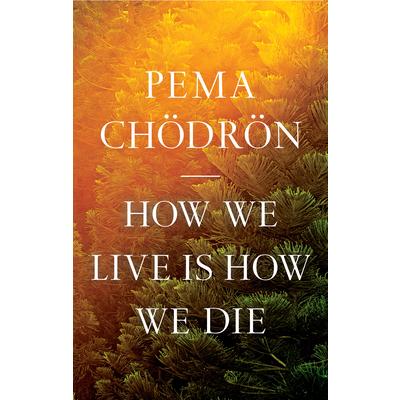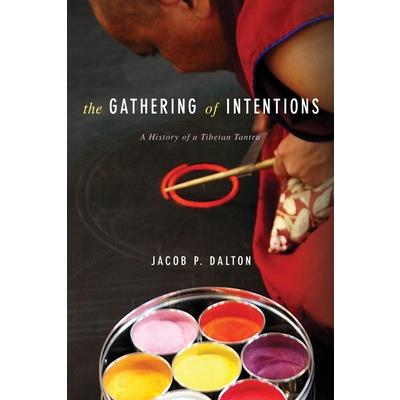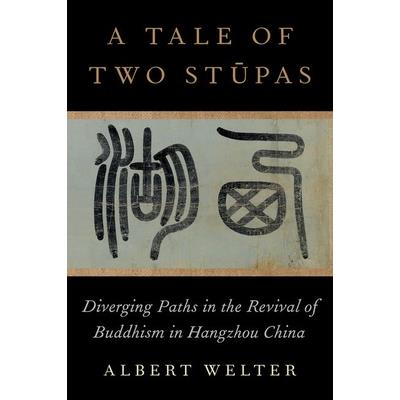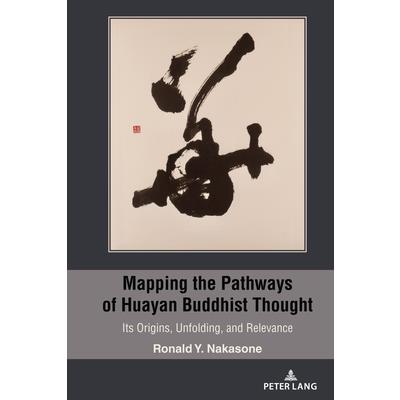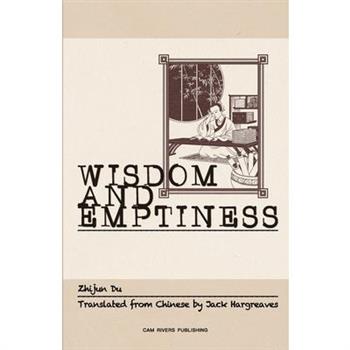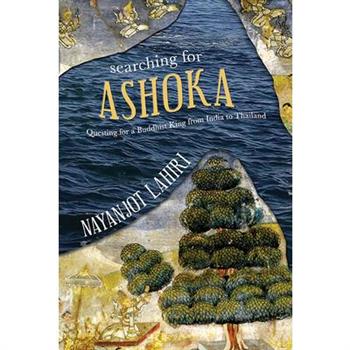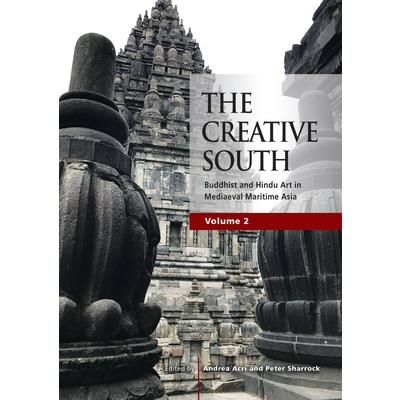Buddha
This work has been selected by scholars as being culturally important, and is part of the knowledge base of civilization as we know it.This work is in the "public domain in the United States of America, and possibly other nations. Within the United States, you may freely copy and distribute this work, as no entity (individual or corporate) has a copyright on the body of the work.Scholars believe, and we concur, that this work is important enough to be preserved, reproduced, and made generally available to the public. We appreciate your support of the preservation process, and thank you for being an important part of keeping this knowledge alive and relevant.
The Wisdom Of Confucius
This work has been selected by scholars as being culturally important, and is part of the knowledge base of civilization as we know it.This work is in the "public domain in the United States of America, and possibly other nations. Within the United States, you may freely copy and distribute this work, as no entity (individual or corporate) has a copyright on the body of the work.Scholars believe, and we concur, that this work is important enough to be preserved, reproduced, and made generally available to the public. We appreciate your support of the preservation process, and thank you for being an important part of keeping this knowledge alive and relevant.
Meeting Challenges
The Heart Wisdom series aims to make the teachings of Ringu Tulku Rinpoche available to a wider audience, by bringing his oral teachings to the written page. This volume presents his commentary on a teaching by the Third Do Drupchen Rinpoche, Jigme Tenpe Nyima, called Bringing Happiness and Unhappiness onto the Path.'If we can work within ourselves, practically and experientially, and come to know that sorrow and joy arise from our own way of reacting and do not depend upon what others say or do, then we become a little bit fearless. Only then can the depth of our comprehension and knowledge penetrate our being.''The point is to watch our mind and bring it into order. The practice is to integrate our understanding with our life. And the purpose is to bring meaning to life, bringing peace and contentment to ourselves as well as others.'
Buddhism in China
This work has been selected by scholars as being culturally important, and is part of the knowledge base of civilization as we know it.This work is in the "public domain in the United States of America, and possibly other nations. Within the United States, you may freely copy and distribute this work, as no entity (individual or corporate) has a copyright on the body of the work.Scholars believe, and we concur, that this work is important enough to be preserved, reproduced, and made generally available to the public. We appreciate your support of the preservation process, and thank you for being an important part of keeping this knowledge alive and relevant.
The Spirit of Zoroastrianism
Henry S. Olcott, was a co-founder of the Theosophical Society, its first president and an early influential writer of the Theosophy movement of the late nineteenth century. Here he writes at length on the subject of Zoroastrianism.
The Saddharma-Pundar簾ka; or, The Lotus of the True Law
This work has been selected by scholars as being culturally important, and is part of the knowledge base of civilization as we know it.This work is in the "public domain in the United States of America, and possibly other nations. Within the United States, you may freely copy and distribute this work, as no entity (individual or corporate) has a copyright on the body of the work.Scholars believe, and we concur, that this work is important enough to be preserved, reproduced, and made generally available to the public. We appreciate your support of the preservation process, and thank you for being an important part of keeping this knowledge alive and relevant.
The Dhammapada
A Beloved Classic of Buddhist Writing One of the best known and most beloved of the Buddhist scriptures, The Dhammapada is a collection of the sayings of the Buddha. According to tradition, each of the verses contained within the text were spoken by the Buddha, surviving through the centuries to find their way into the hands of modern readers. Translated by Max Muller, the verses cover a range of topics from Thought and Pleasure to Old Age, Happiness, and The Way. They are both simple and profound, guideposts to living an enlightened life and incisive shards of wisdom that cut through our passivity to the reality of spiritual enlightenment. This edition of The Dhammapada is part of the Essential Wisdom Library, a series that seeks to bring spiritual wisdom, both old and new, to modern readers.
Guide to Buddahood
This work has been selected by scholars as being culturally important, and is part of the knowledge base of civilization as we know it.This work is in the "public domain in the United States of America, and possibly other nations. Within the United States, you may freely copy and distribute this work, as no entity (individual or corporate) has a copyright on the body of the work.Scholars believe, and we concur, that this work is important enough to be preserved, reproduced, and made generally available to the public. We appreciate your support of the preservation process, and thank you for being an important part of keeping this knowledge alive and relevant.
Nirv璽na
This work has been selected by scholars as being culturally important, and is part of the knowledge base of civilization as we know it.This work is in the "public domain in the United States of America, and possibly other nations. Within the United States, you may freely copy and distribute this work, as no entity (individual or corporate) has a copyright on the body of the work.Scholars believe, and we concur, that this work is important enough to be preserved, reproduced, and made generally available to the public. We appreciate your support of the preservation process, and thank you for being an important part of keeping this knowledge alive and relevant.
The Discourse on the Fruits of Recluseship
The Buddha traces the entire progress of a disciple from the first step on the path to the attainment of Nibbana in this second sutta of the Sutta Pitaka, one of the most elevating of the Buddha's discourses. On a full-moon night in Autumn, in reply to a question asked by King Ajatasattu of Magadha, the Buddha expounds the visible fruits of the Buddhist monk's life, sketching the progress of the disciple."...the Sāma簽簽aphala Sutta sounds a triumphant and lyrical proclamation of the fruitfulness of the course of spiritual training founded upon right view. It is the Buddha's announcement to the world that the life of renunciation he adopted for himself and opened up to humanity by founding the sangha brings immediately visible benefits in each of its stages. It is 'good in the beginning' through the bliss of blamelessness that comes with the purification of conduct; 'good in the middle' in yielding an exalted joy and bliss through the seclusion of the mind from the sensual hindrances; and 'good in the end' because it culminates in the highest wisdom and peace by transcending all mundane bonds." (From the translator's Preface)The work is not only a great spiritual classic, but also a literary gem distinguished by its beauty of poetic imagery.
Phallicism, Celestial and Terrestrial, Heathen and Christian, its Connexion With the Rosicrucians and the Gnostics and its Foundation in Buddhism, With an Essay on Mystic Anatomy
This work has been selected by scholars as being culturally important, and is part of the knowledge base of civilization as we know it.This work is in the "public domain in the United States of America, and possibly other nations. Within the United States, you may freely copy and distribute this work, as no entity (individual or corporate) has a copyright on the body of the work.Scholars believe, and we concur, that this work is important enough to be preserved, reproduced, and made generally available to the public. We appreciate your support of the preservation process, and thank you for being an important part of keeping this knowledge alive and relevant.
Phallicism, Celestial and Terrestrial, Heathen and Christian, its Connexion With the Rosicrucians and the Gnostics and its Foundation in Buddhism, With an Essay on Mystic Anatomy
This work has been selected by scholars as being culturally important, and is part of the knowledge base of civilization as we know it.This work is in the "public domain in the United States of America, and possibly other nations. Within the United States, you may freely copy and distribute this work, as no entity (individual or corporate) has a copyright on the body of the work.Scholars believe, and we concur, that this work is important enough to be preserved, reproduced, and made generally available to the public. We appreciate your support of the preservation process, and thank you for being an important part of keeping this knowledge alive and relevant.
Hand-Book of Chinese Buddhism
This work has been selected by scholars as being culturally important, and is part of the knowledge base of civilization as we know it.This work is in the "public domain in the United States of America, and possibly other nations. Within the United States, you may freely copy and distribute this work, as no entity (individual or corporate) has a copyright on the body of the work.Scholars believe, and we concur, that this work is important enough to be preserved, reproduced, and made generally available to the public. We appreciate your support of the preservation process, and thank you for being an important part of keeping this knowledge alive and relevant.
The Sayings of Confucius
This work has been selected by scholars as being culturally important, and is part of the knowledge base of civilization as we know it.This work is in the "public domain in the United States of America, and possibly other nations. Within the United States, you may freely copy and distribute this work, as no entity (individual or corporate) has a copyright on the body of the work.Scholars believe, and we concur, that this work is important enough to be preserved, reproduced, and made generally available to the public. We appreciate your support of the preservation process, and thank you for being an important part of keeping this knowledge alive and relevant.
The Buddha’s Path to Deliverance
A classic entry in the Pali canon, this anthology charts the entire course of spiritual development as prescribed in the most ancient Buddhist texts. Drawing upon the Buddha's own words from Sutta Pitaka, they are arranged in accordance with two overlapping schemes of practice: the threefold training in virtue, concentration, and wisdom, and the seven stages of purification. A lengthy chapter on concentration provides sutta sources for all 40 classical subjects of meditation, while a chapter on wisdom cites texts relating to the development of insight. (Note: This title was previously published under ISBN 9781928706182. Due to technical issues a new ISBN had to be assigned. Rest assured that both versions of this title are exactly the same.)
Conjuring the Buddha
Finalist, 2024 Award for Excellence in the Study of Religion: Textual Studies, American Academy of Religion Ritual manuals are among the most common and most personal forms of Buddhist literature. Since at least the late fifth century, individual practitioners--including monks, nuns, teachers, disciples, and laypeople--have kept texts describing how to perform the daily rites. These manuals represent an intimate counterpart to the canonical sutras and the tantras, speaking to the lived experience of Buddhist practice. Conjuring the Buddha offers a history of early tantric Buddhist ritual through the lens of the Tibetan manuscripts discovered near Dunhuang on the ancient Silk Road. Jacob P. Dalton argues that the spread of ritual manuals offered Buddhists an extracanonical literary form through which to engage with their tradition in new and locally specific ways. He suggests that ritual manuals were the literary precursors to the tantras, crucial to the emergence of esoteric Buddhism. Examining a series of ninth- and tenth-century tantric manuals from Dunhuang, Dalton uncovers lost moments in the development of rituals such as consecration, possession, sexual yoga, the Great Perfection, and the subtle body practices of the winds and channels. He also traces the use of poetic language in ritual manuals, showing how at pivotal moments, metaphor, simile, rhythm, and rhyme were deployed to evoke carefully sculpted affective experiences. Offering an unprecedented glimpse into the personal practice of early tantric Buddhists, Conjuring the Buddha provides new insight into the origins and development of the tantric tradition.
A Lasting Vision
A Lasting Vision is dedicated to the Mirror of Literature (Kavyadarsa), a Sanskrit treatise on poetics composed by Dandin in south India (c. 700 CE), and to the treatise's remarkable career throughout large parts of Asia. The Mirror was adapted and translated into several languages spoken on the southern Indian peninsula (Kannada, Tamil) and on the Island of Sri Lanka (Sinhala, Pali), as well as in the Tibetan plateau far to the north (Tibetan, Mongolian). In all these receiving cultures it became a classical text and a source of constant engagement and innovation, often well into the modern era. It also travelled to Burma and Thailand, where it held a place of honor in Buddhist monastic education and intellectual life, and likely to the islands of Java and Bali, where it contributed to the production of literature in Old Javanese. There is even reason to believe that it reached China and impacted Chinese literary culture, although far more peripherally than in other parts of Asia. It also maintained a prominent position in Sanskrit learned discourses throughout the Indian subcontinent for at least a millennium. This multi-authored volume, organized by region and language, is the first attempt to chart and explain the Mirror's amazing transregional and multilingual success: what was so unique about this work that might explain its near-continental conquest, how was it transmitted to and received in these different environments, and what happened to it whenever it was being adopted and adapted.
White Tara
This volume gives Ringu Tulku's teachings on the practice of White Tara. He describes how the formal sadhana practice incorporates all aspects of practice; including shamatha, vipassana and Mahamudra. The teachings are based on the short sadhana of White Tara written by Tenga Rinpoche, with a new English translation of the text. Many questions and answers are included to clarify the practice; and Ringu Tulku's characteristic descriptions, which relate the practice firmly back to ourselves and our lives, as we are right now, are invaluable.All profits from the sale of this book go to Rigul Trust to help fund health care, education and poverty relief projects, particularly in Ringu Tulku's homeland of Rigul.See: www.rigultrust.org
The Bloomsbury Handbook of Japanese Religions
Providing an overview of current cutting-edge research in the field of Japanese religions, this Handbook is the most up-to-date guide to contemporary scholarship in the field. As well as charting innovative research taking place, this book also points to new directions for future research, covering both the modern and pre-modern periods. Edited by Erica Baffelli, Andrea Castiglioni, and Fabio Rambelli, The Bloomsbury Handbook of Japanese Religions includes essays by international scholars from the USA, Europe, Japan, and New Zealand. Topics and themes include gender, politics, the arts, economy, media, globalization, and colonialism. The Bloomsbury Handbook of Japanese Religions is an essential reference point for upper-level students and scholars of Japanese religions as well as Japanese Studies more broadly.
Buddhism under Capitalism
This book argues that Buddhism has spread due to globalized capitalism, and explores how capitalism is also impacting Buddhists and Buddhism today. Edited by two leading scholars in Buddhist studies, the book examines how capitalism and neo-liberalism have shaped global perceptions of Buddhism, as well as specific local practices and attitudes. It examines the institutional practices that sustained the spread of Buddhism for two and a half millennia, and the adaptation of Buddhist institutions in contemporary, global economic systems-particularly in Europe and the United States over the last century and half. These innovative essays on the interfaces between Buddhism and capitalism will prompt readers to rethink the connection between Buddhism and secular society. Case studies include digital capitalism, tourism, and monasticism, and are drawn from the USA, Tibet, China, Japan, and Thailand.
Early Buddhist Society
What might daily life have been like in India in the time of the Buddha? Who were some of the rulers, monks, philosophers, devotees, and doctors with whom the Buddha would have interacted and had discussions? What was involved in spreading the message of Buddhism and setting up the Buddhist sangha (order)? What were the schisms and factions, and what was the nature of opposition to Buddhism from Brahmin hegemony?A great deal is known about Buddhist tenets and doctrine, but very little exists on the lived context of the Buddha himself. Early Buddhist texts in Pali reveal a society in ways that other texts relating to Buddhism, as well as the Brahmanical literature, do not. Xinru Liu reads this literature, along with the earliest Buddhist artworks on stupas, to argue that the historical Buddha does not really exist in the imagination of most people, including Buddhists. In this book, she sets out to plug this gap in our understanding of Buddhism, illuminating and eliminating many misconceptions along the way. Gender, religion, and caste in early India come alive in this richly scholarly yet accessible and imaginative account of society in the time of the Buddha. This is a book for students, teachers, and everyone interested in the living universe of India 2500 years ago.
New Perspectives in Modern Korean Buddhism
New Perspectives in Modern Korean Buddhism moves beyond nationalistic, modernist, and ethnocentric historiographies of modern Korean Buddhism by carefully examining individuals' lived experiences, the institutional dimensions of Korean Buddhism, and its place in transnational conversations. Drawing upon rich archives as well as historical, anthropological, and literary approaches, the book examines four themes that have gained attention in recent years: perennial existential concerns and the persistent relevance of religious practice; the role of female Buddhists; clerical marriage and scandals; and engagement with secular society. The book reveals the limits of metanarratives, such as those of colonialism, nationalism, and modernity, in understanding the complex and contested identities of both monastics and laity, thus demanding that we diversify the methods by which we articulate the history of modern Korean Buddhism.
Demystifying Awakening
"A rich and beautiful resource for those called to deepen their exploration of Awakening and freedom."-Tara Brach, best-selling author of Trusting the Gold and Radical CompassionSee the potential that is within each of us-the realization and embodiment of our true natureWith Demystifying Awakening, senior meditation teacher Stephen Snyder skillfully marks the subtle path of the Awakening process. With loving care, personal examples, and gentle suggestions, Stephen plants the seeds of practice and meditation by: explaining Awakening in an accessible way that draws on Zen and Theravada Buddhist traditions;guiding readers through more than thirty foundational and advanced meditations and practices that support each step on the path of realization;offering advice for identifying and working with resistances to Awakening; andencouraging the embodiment and lived expression of realization through an exploration of the pāramīs, the Buddhist perfections of behavior.Demystifying Awakening transmits a practice path for Awakening in this lifetime."A unique and profound manual . . . that clearly and succinctly unveils the path, and process, of Awakening as practiced, lived, and taught by Stephen Snyder."-Judson Brewer, MD, PhD, NYT best-selling author of Unwinding Anxiety and The Craving Mind"Stephen is a friendly, helpful, and sweetly encouraging guide. In his pages, you feel like you're coming home to who you've always been: wakeful, loving, contented, and wise."-Rick Hanson, PhD, NYT best-selling author of Neurodharma and Buddha's Brain"A wise map and a powerful reminder that while the path is in a sense a pathless path, and leads right back to here and now, that doesn't mean Awakening isn't real."-Henry Shukman, author of One Blade of Grass and guiding teacher of Mountain Cloud Zen Center
Chenrezig - The Practice of Compassion
Ringu Tulku Rinpoche's commentary on the shortest and most popular Chenrezig sadhana that was composed by Thangtong Gyalpo. "Chenrezig - or Avalokiteshvara in Sanskrit - is the name of the bodhisattva who is regarded as the Lord of Compassion or the embodiment of compassion. Chenrezig practice is done in order to develop our own compassion. From the Buddhist point of view, we can try to generate compassion through changing or re-thinking our attitude and working on our way of perceiving things. Then there's another way, which is the one I will mainly explain here, and that is through feeling; it's an experiential, emotional approach."All profits received by Rigul Trust from the sale of this book will go to fund Rigul Trust health, education and poverty relief projects. This will help to bring benefit to all the children, the teachers, the cooks, the health clinic, the doctor, his assistant, the nurse, and all the people in Rigul, Tibet.See rigultrust.org
Conjuring the Buddha
Finalist, 2024 Award for Excellence in the Study of Religion: Textual Studies, American Academy of Religion Ritual manuals are among the most common and most personal forms of Buddhist literature. Since at least the late fifth century, individual practitioners--including monks, nuns, teachers, disciples, and laypeople--have kept texts describing how to perform the daily rites. These manuals represent an intimate counterpart to the canonical sutras and the tantras, speaking to the lived experience of Buddhist practice. Conjuring the Buddha offers a history of early tantric Buddhist ritual through the lens of the Tibetan manuscripts discovered near Dunhuang on the ancient Silk Road. Jacob P. Dalton argues that the spread of ritual manuals offered Buddhists an extracanonical literary form through which to engage with their tradition in new and locally specific ways. He suggests that ritual manuals were the literary precursors to the tantras, crucial to the emergence of esoteric Buddhism. Examining a series of ninth- and tenth-century tantric manuals from Dunhuang, Dalton uncovers lost moments in the development of rituals such as consecration, possession, sexual yoga, the Great Perfection, and the subtle body practices of the winds and channels. He also traces the use of poetic language in ritual manuals, showing how at pivotal moments, metaphor, simile, rhythm, and rhyme were deployed to evoke carefully sculpted affective experiences. Offering an unprecedented glimpse into the personal practice of early tantric Buddhists, Conjuring the Buddha provides new insight into the origins and development of the tantric tradition.
The Flower Adornment Sutra - Volume One
The Flower Adornment Sutra is Bhikshu Dharmamitra's extensively annotated 3-volume original translation of the Maḥāvaipulya Buddha Avataṃsaka Sūtra or "The Great Expansive Buddha's Flower Adornment Sutra" rendered from Tripitaka Master Śikṣānanda's circa 699 ce Sanskrit-to-Chinese 80-fascicle translation as the "Da Fangguang Fo Huayan Jing" (大方廣佛華嚴經 / Taisho Vol. 10, no. 279). It consists of 39 chapters that introduce an interpenetrating, infinitely expansive, and majestically grand multiverse of countless buddha worlds while explaining in great detail the cultivation of the bodhisattva path to buddhahood, most notably the ten highest levels of bodhisattva practice known as "the ten bodhisattva grounds." To date, this is the first and only complete English translation of the Avataṃsaka Sutra.
The Flower Adornment Sutra - Volume Three
The Flower Adornment Sutra is Bhikshu Dharmamitra's extensively annotated 3-volume original translation of the Maḥāvaipulya Buddha Avataṃsaka Sūtra or "The Great Expansive Buddha's Flower Adornment Sutra" rendered from Tripitaka Master Śikṣānanda's circa 699 ce Sanskrit-to-Chinese 80-fascicle translation as the "Da Fangguang Fo Huayan Jing" (大方廣佛華嚴經 / Taisho Vol. 10, no. 279). It consists of 39 chapters that introduce an interpenetrating, infinitely expansive, and majestically grand multiverse of countless buddha worlds while explaining in great detail the cultivation of the bodhisattva path to buddhahood, most notably the ten highest levels of bodhisattva practice known as "the ten bodhisattva grounds." To date, this is the first and only complete English translation of the Avataṃsaka Sutra.
What Is Buddhist Enlightenment
What kind of person should I strive to be? What ideals should I pursue in my life? These basic human questions and others like them are components of the overall question that guides this book: What is enlightenment? As Dale Wright argues, any serious practitioner of human life, religious or not, confronts the challenge of living an authentic life, of overcoming common human disabilities like greed, hatred, and delusion that give rise to excessive suffering. Why then, Wright asks, is this essential question often avoided, even discouraged among Buddhists? One reason frequently cited by Buddhists is that pondering a distant goal might be a waste of energy that would be better applied to practice: Quiet the flow of obsessive thinking, put yourself in a mindful state of presence, and let enlightenment take care of itself. In this book, however, Wright contends that pondering this question is meditative practice--that attentive inquiry of this kind is essential as the starting point and guide for any mindful practice of life. Meditative reflection on the meaning of enlightenment focuses us on our aim and direction in life. It guides us in shaping our practices, our ideals, and the kinds of lives we will live. Asking what enlightenment is as a basic form of meditation helps to activate our lives and get transformative practice underway. From Wright's perspective, there is no more important question to ask than this one. What is Buddhist Enlightenment? offers a wide-ranging exploration of issues that have a bearing on the contemporary meaning of enlightenment, including a concluding section with 10 theses that answer the title's question. Written by a leading scholar of Buddhism, the book balances deep learning and an accessible style, offering valuable insights for students, scholars, and practitioners alike. While he takes an examination of what enlightenment has been in past Buddhist traditions as his point of departure, Wright's historical considerations yield to the question that our lives press upon us--what kinds of lives should we aspire to live here, now, and into the future?
Searching for the Body
In the early fifteenth century, two Tibetan monks debated how to transform the body ritually into a celestial palace inhabited by buddhas. The discussion between Ngorchen Künga Zangpo and Kh矇drupj矇 G矇lek Pelzangpo concerned the mechanics of this tantric ritual practice, known as body mandala, as well as the most reliable sources to follow in performing it. As representatives of the Sakya and emerging Geluk traditions respectively, these authors spoke for communities of Buddhist practitioners vying for patronage and prestige in an evolving Tibetan scholastic culture. Their debate witnessed clashes between imagination and deception, continuity and rupture, and tradition and innovation. Searching for the Body demonstrates the significance of the body mandala debate for understandings of Tibetan Buddhism as well as conversations on representation and embodiment occurring across the disciplines today. Rae Erin Dachille explores how Ngorchen and Kh矇drup used citational practice as a tool for making meaning, arguing that their texts reveal a deep connection between ritual mechanics and interpretive practice. She contends that this debate addresses strikingly contemporary issues surrounding interpretation, intertextuality, creativity, essentialism, and naturalness. Buddhist ideas about the construction of meaning and the body offer new ways of understanding representation, which Dachille illuminates in an epilogue that considers Glenn Ligon's engagement with Robert Mapplethorpe's photography. By placing Buddhist thought in dialogue with contemporary artistic practice and cultural critique, Searching for the Body offers vital new perspectives on the transformative potential of representations in defining and transcending the human.
Buddhism in Daily Life
A general introduction to the main ideas of Theravada Buddhism. The purpose of this book is to help the reader gain insight into the Buddhist scriptures and the way in which the teachings can be used to benefit both ourselves and others in everyday life. Several chapters are written in the form of question and answer, inspired by questions posed by ordinary people who were confronted with difficulties in the practical application of the teachings. The book will be an invaluable aid for those individuals who wish to develop the Buddhist path to true understanding. Suitable for both practicing Buddhists and newcomers to the teachings.
The Dalai Lama’s Special Envoy
Lodi Gyaltsen Gyari spent decades drawing attention to the plight of the Tibetan people and striving for resolution of the Tibetan-Chinese conflict. He was the Dalai Lama's Special Envoy and chief negotiator with the People's Republic of China in the formal negotiations over the status of Tibet. In this revealing memoir, Gyari chronicles his lifetime of service to the Dalai Lama and the Tibetan cause. Gyari recounts his work conducting formal dialogue with the Chinese leadership from 2002 to 2012, as well as his efforts during the many years of quiet diplomacy preceding these historic negotiations. He details the fits and starts of the parties' relationship, addressing successes as well as failures and highlighting misperceptions, missteps, and missed opportunities by both sides. Gyari grounds his recollections of his time as Special Envoy in his life experience, providing a powerful account of the personal side of Tibet's struggles. He describes the Tibetan resistance to the Chinese invasion and the tumultuous early years of the Tibetan community in exile as well as his family's history and spiritual lineage. A reincarnated Tibetan Buddhist lama forced to flee Tibet during the Chinese invasion, Gyari illuminates how his political efforts fulfilled his spiritual calling. Informed by his unparalleled experiences, Gyari offers realizable--but provocative--recommendations for restarting the Tibetan-Chinese dialogue to achieve a mutually beneficial resolution of the issue. For all readers interested in Tibet's complex modern history, this book offers an incomparable look inside the decades-long effort to achieve the Dalai Lama's vision of a reunited Tibet.
How We Live Is How We Die
Discover newfound freedom in life's ever-constant flow of endings and beginnings with the wise words of Pema Ch繹dr繹n, beloved Buddhist nun and bestselling author of When Things Fall Apart As much as we might try to resist, endings happen in every moment--the end of a breath, the end of a day, the end of a relationship, and ultimately the end of life. And accompanying each ending is a beginning, though it may be unclear what the beginning holds. In How We Live Is How We Die, Pema Ch繹dr繹n shares her wisdom for working with this flow of life--learning to live with ease, joy, and compassion through uncertainty, embracing new beginnings, and ultimately preparing for death with curiosity and openness rather than fear. Poignant for readers of all ages, her teachings on the bardos--a Tibetan term referring to a state of transition, including what happens between this life and the next--reveal their power and relevance at each moment of our lives. She also offers practical methods for transforming life's most challenging emotions about change and uncertainty into a path of awakening and love. As she teaches, the more freedom we can find in our hearts and minds as we live this life, the more fearlessly we'll be able to confront death and what lies beyond. In all, Pema provides readers with a master course in living life fully and compassionately in the shadow of death and change.
Trust in Awakening
A unique and fulfilling map to realization and Awakening offered by one of today's finest spiritual teachers.With Trust in Awakening, Zen and Theravada Buddhist teacher Stephen Doetsu Snyder presents a fresh and powerful reworking of the 7th century Zen poem, the Xin Xin Ming. This poem has guided and inspired serious Zen practitioners on the path to Awakening for centuries. Structuring its stanzas in koan-like meditations, Snyder interprets the poem's directions to seeing the Absolute, the source, fully manifesting in each of us-to Awakening.In addition, Snyder gives an insightful line-by-line commentary and questions us after each stanza, provoking an internal examination. He points us in the direction of the Absolute, in its many expressions, the source of all universes and realization. This distinct approach creates the space for us to dwell on each line, open ourselves to its significance, and take another step on the path of no path.Trust in Awakening transmits the reality of the Absolute while encouraging us to keep following its map, unfolding the path to Awakening.
Dharma Training Course Year Three
The Triratna Dharma Training Course for Mitras offers a comprehensive four-year course in Buddhism and meditation. This is a Revised Edition of Year Three, which includes: Selected Suttas from the Pāli Canon Letters of Gold, Letters of Fire: Living with the Dhammapada Towards Insight, Reflection and Meditation In Search of the Middle Way: Mahāyāna Perspectives The Bodhisattva Ideal The Drama of Cosmic Enlightenment: The White Lotus Sutra Faith, Symbols and the Imagination Ambedkar and Buddhism - NEW MODULE ADDED 2018 Plus detailed Index
Protestantism as a worldwide renewal movement from 1945 until today; Panoramic survey
The volume deals with the witness and the service of Protestants and Protestant churches in all nations and contexts and sketches Protestantism as a global renewal movement. It is active in the setting of all 171 nations with a non-Protestant religious or secular majority, and in the 28 Protestant majority nations. Protestantism wants to make all people 'mature' and all societies 'responsible.' It made the Bible the most translated book on earth and provided more songs and hymns than any other religion or movement. About 10 % of the world population is Protestant. But the impact of Protestantism on world culture is larger than 10 %. The book highlights the significance of Protestant Noble Peace Prize winners and martyrs. Billy Graham, Martin Luther King, Desmond Tutu and Nelson Mandela are the most influential Protestants in the post-war period. Protestants dream of a universal language, a universal statement of faith, and a universal hymn.
The Gathering of Intentions
The Gathering of Intentions reads a single Tibetan Buddhist ritual system through the movements of Tibetan history, revealing the social and material dimensions of an ostensibly timeless tradition. By subjecting tantric practice to historical analysis, the book offers new insight into the origins of Tibetan Buddhism, the formation of its canons, the emergence of new lineages and ceremonies, and modern efforts to revitalize the religion by returning to its mythic origins. The ritual system explored in this volume is based on the Gathering of Intentions Sutra, the fundamental "root tantra" of the Anuyoga class of teachings belonging to the Nyingma ("Ancient") school of Tibetan Buddhism. Proceeding chronologically from the ninth century to the present, each chapter features a Tibetan author negotiating a perceived gap between the original root text--the Gathering of Intentions--and the lived religious or political concerns of his day. These ongoing tensions underscore the significance of Tibet's elaborate esoteric ritual systems, which have persisted for centuries, evolving in response to historical conditions. Rather than overlook practice in favor of philosophical concerns, this volume prioritizes Tibetan Buddhism's ritual systems for a richer portrait of the tradition.
A Tale of Two Stūpas
Hangzhou, the capital of Zhejiang Province, and the surrounding environs have one of the richest Buddhist cultures in China. In A Tale of Two Stūpas, Albert Welter tells the story of Hangzhou Buddhism through the conceptions, erections, and resurrections of Yongming Stupa, dedicated to the memory of one of Hangzhou's leading Buddhist figures, and Leifeng Pagoda, built to house stupa relics of the historical Buddha. Welter delves into the intricacies of these two sites and pays particular attention to their origins and rebirths. These sites have suffered devastation and endured long periods of neglect, yet both have been resurrected and re-resurrected during their histories and have resumed meaningful places in the contemporary Hangzhou landscape, a mark of their power and endurance. A Tale of Two Stūpas adopts a site-specific, regional approach in order to show how the dynamics of initial conception, resurrection, and re-resurrection work, and what that might tell us about the nature of Hangzhou and Chinese Buddhism.
Mapping the Pathways of Huayan Buddhist Thought
The Huayan scholar-monk Fazang (643-712) formulated, with the 'Ten Subtle and Unimpeded Dharma-Gates' of Pratītyasamutpāda, or 'Ten Dharma-Gates, ' a series of cognitive and affective paradigms that describe how the Enlightenment-Mind apprehends reality. These patterns, in turn, model the way Buddhists understand, explain, configure, reflection, imagine, and engage the world. The basis for these paradigms is the truth and experience of pratītyasamutpāda, 'dependent-co-arising, ' which the Buddha intuited. This book traces the origins and unfolding of the insight of an interdependent and multi-centered reality, which Fazang crystallizes with the 'Ten Dharma-Gates, ' and employs that insight to reflect on modern ethical and moral concerns, curriculum design, and aesthetics. Examination of the presuppositions of Buddhist thought--distinguishing it from the certainty of absolute-centered ideologies that subsume all meaning and values--should be of interest to academics. Aestheticians, artists, and Buddhist devotees will appreciate the intuitive sources of Buddhism. This book opens new vistas for Buddhist studies.
Emptiness and Wisdom
Life is marred by sundry afflictions. Birth, ageing, sickness, and death; union and parting, loss and gain, setbacks and frustrations; worries, despondence, and disputes-they plague and hinder us every moment of every day. With this book the author hopes, by shedding light on the great mystery of Buddhist emptiness, to guide readers onto the path to liberation. Buddhist Dharma tells us that all suffering and vexation arises from our own mind, and that if we desire liberation from them, we must start by purifying ourselves. The human mind possesses a dual nature, it contains a self aspect and a non-self aspect. The former, the self-nature of mind, is nothing more than an amalgamation of causal conditions, it does not truly exist; the latter, the non-self nature of mind-our Buddha nature-is what truly requires our attention, our illumination, because to rediscover that is the way to escape suffering once and for all. Look to nature-to the skies and the earth, to water and fire, to the sunlight and air-for the wisdom of emptiness. Allow the universal laws of nature to guide your understanding of Buddhist Dharma and your cultivation of its teachings. And just maybe, you will find your own path to freedom from life's suffering.
The Routledge Handbook of Buddhist-Christian Studies
Buddhist-Christian dialogue has a long and complex history stretching back to the first centuries of the common era. This explores how the study of Buddhist-Christian relations has been and ought to be done and is essential reading for researchers and students interested in Asian religions and interreligious relationships.
Ambedkar’s Neo Buddhism An Important Reflection
Dr. Ambedkar's actual experience and formation of his concept of Dharma Bhimrao Ramji was born on 14th April 1891 in a family of Mahar community in Maharastra. His mother was Bhimabai and his father was Ramji Shakpal. The original residence of the Ramji family was in the village of Amabavade in Kher Taluk, Ratnagiri district of Maharashtra. 5 Their family's name was Shakpal. But according to the rules of Maharastra, Bhimrao Ramji used to write the name of the village along with his name, Ambavadekar; studied at T Swan High School in Mombai in 1900 from onward.6 He was introduced to an exceptional teacher who used to eat food with Bhimrao, though he was a Brahmin himself. This Brahmin teacher's surname was Ambedkar.7 His full name was Krishna Keshav Ambedkar. One day he ordered Bhima to use Ambedkar as his title everywhere.8 Since then, this great man has been named Bhimrao Ramji Ambedkar. Later on he became renowned for this name. Ambedkar faced the curse of untouchability at a very young age. He also realized that many foreign missions in India and many foreign regimes caused huge damage to India and Indians. But India's social life has caused the maximum harm in terms of untouchability. The distorted from of traditional Hindu Dharma concentrated in inequalities of caste discrimination. Inhuman discrimination to the ethnic group of this race creates a deep wound in Dr. Ambedkar's mind. He realized that by making proper explanation of Dharma, it is possible to make the greatest improvement in social life in India. In this chapter "Ambedkar's Actual Experience and Formation of His Concept of Dharma" is highlighted to show Dr. Ambedkar's experience of Dharma and his approaches to reconstruction of Dharma. This chapter has five sub-topics. These are: 1) Vedic period and Varna vyavastha, 2) Manusamhita and Varna vyavastha, 3) Dr. Abmedkar's period and Varna vyavastha, 4) Revival of Hindu Dharma, and 5) New approach of Dharma. 1. Vedic period and Varna vyavastha: The Vedas are the largest and oldest literature of ancient world. The Vedas are recorded by mantras, hymns or chants. To those who uttered all these hymns are called Rishis. The deities were worshiped with mantras. The,
Searching for Ashoka
Blending travelogue, history, and archaeology, Searching for Ashoka unravels the various avatars of India's most famous emperor, revealing how he came to be remembered--and forgotten--in distinctive ways at particular points in time and in specific locations. Through personal journeys that take her across India and to various sites and cities in Sri Lanka, Myanmar, and Thailand, archaeologist Nayanjot Lahiri explores how Ashoka's visibility from antiquity to the modern era has been accompanied by a reinvention of his persona. Although the historical Ashoka spoke expansively of his ideas of governance and a new kind of morality, his afterlife is a jumble of stories and representations within various Buddhist imaginings. By remembering Ashoka selectively, Lahiri argues, ancient kings and chroniclers created an artifice, constantly appropriating and then remolding history to suit their own social visions, political agendas, and moral purposes.
The Creative South
This edited volume programmatically reconsiders the creative contribution of the littoral and insular regions of Maritime Asia to shaping new paradigms in the Buddhist and Hindu art and architecture of the mediaeval Asian world. Far from being a mere southern conduit for the maritime circulation of Indic religions, in the period from ca. the 7th to the 14th century those regions transformed across mainland and island polities the rituals, icons, and architecture that embodied these religious insights with a dynamism that often eclipsed the established cultural centres in Northern India, Central Asia, and mainland China. This collective body of work brings together new research aiming to recalibrate the importance of these innovations in art and architecture, thereby highlighting the cultural creativity of the monsoon-influenced Southern rim of the Asian landmass. "Although Maritime Asia in mediaeval times was not as densely populated as the agrarian hinterland, Asia's coasts were highly urbanized. The region from southern India to south China was a heterogeneous blend of cultures, leavened with a strong interest in trade. This cosmopolitan society afforded plentiful opportunities for artists to find patrons and develop individual styles and aesthetic sensibilities. In the bustling ports of Asia's south coast, rulers sought to embellish their prestige and attract foreign merchants by sponsoring the development of monumental complexes and centres of learning and debate. These educational institutions attracted teachers from all over Asia, and in their cloisters they developed new intellectual frameworks which were reflected in works of art and architecture. Scholars moved frequently by sea, influencing and being influenced by other foreigners such as Japanese and central Asians who were also attracted to these places. This very variety has hindered scholarly research in the past. This volume contributes to the endeavour to show how Maritime Asia was not an incoherent jumble of misunderstood influences from better-known civilizations; there was a pattern to this creativity, which the authors in this collection clarify for us. The maritime world of Asia may have lain on the margins of the land, but it provided a physical and intellectual medium through which artistic ideas from east and west flowed freely. Maritime Asia also made significant original contributions which hold their own with those of the hinterland of the Asian continent. Unconstrained by the burden of static hierarchical courts, the peoples of Maritime Asia built on the inspiration provided by a hybrid society to demonstrate a high degree of artistic originality while testing but not breaking the link with conventional iconography."-- Professor John Miksic, Department of Southeast Asian Studies, Faculty of Arts and Social Sciences, National University of Singapore (NUS)




